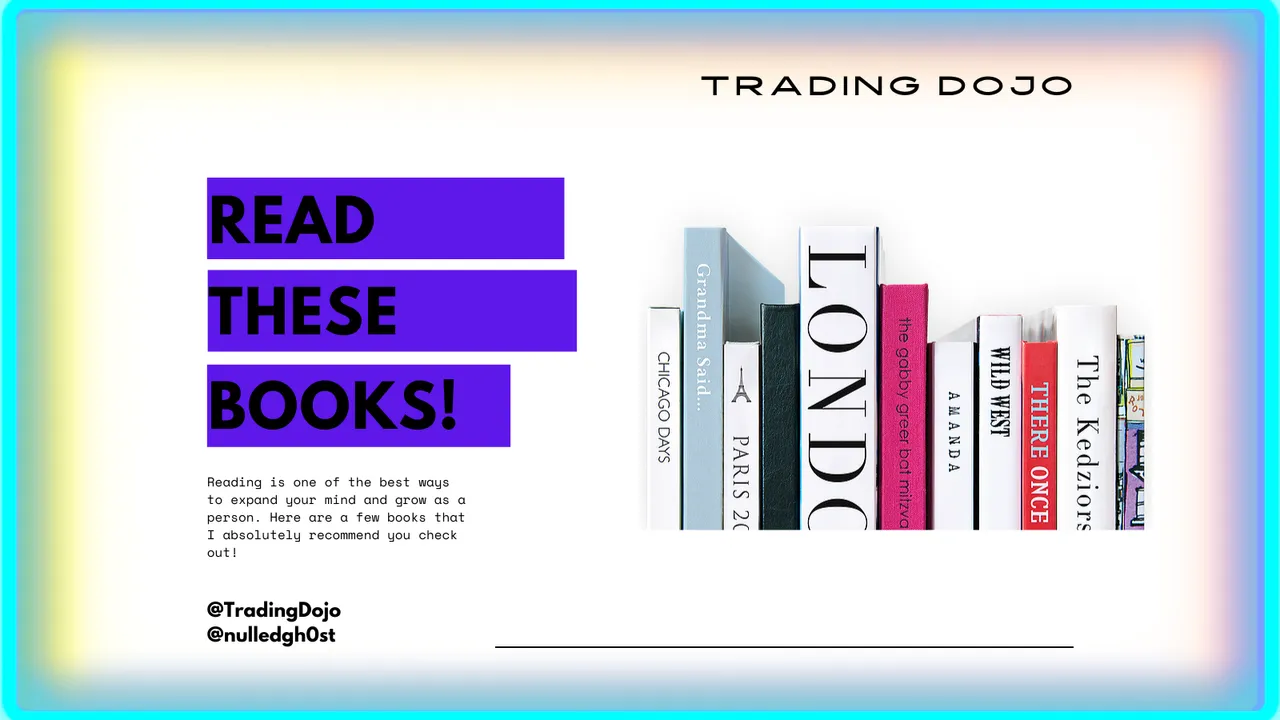
Reading is a timeless hobby. My life has been dramatically influenced by the hundreds of books I've read over the years - from my level of creativity to my emotional well-being, financial savviness, and adventurous spirit, books have been a massive part of my life and have provided immense value. Without them, I would definitely not be the person I am today, with the outlook that I have on the world (and more importantly, of myself).
It's 1000% true that knowledge is power - but books provide so much more than just information and education.
Books shape, inspire. They spark emotion, trigger the senses, and transport the mind to otherworldly dimensions. Books have a power beholden only to them - and, of all available sources of knowledge, entertainment, and thought-provoking ideas, they are, in my opinion, the most impactful.
That being said, I've chosen a few books to share with everyone. These books are ones I consider to have impacted me most throughout the years. They've helped mold the mindset I approach my finances with. Ones that have provoked deep thought and have taught me to bet a more disciplined, creative, intelligent human being. I recommend that everyone give these books a read, as I feel that you will also benefit greatly from the words, ideas, and wisdom contained within.
Atomic Habits - by James Clear
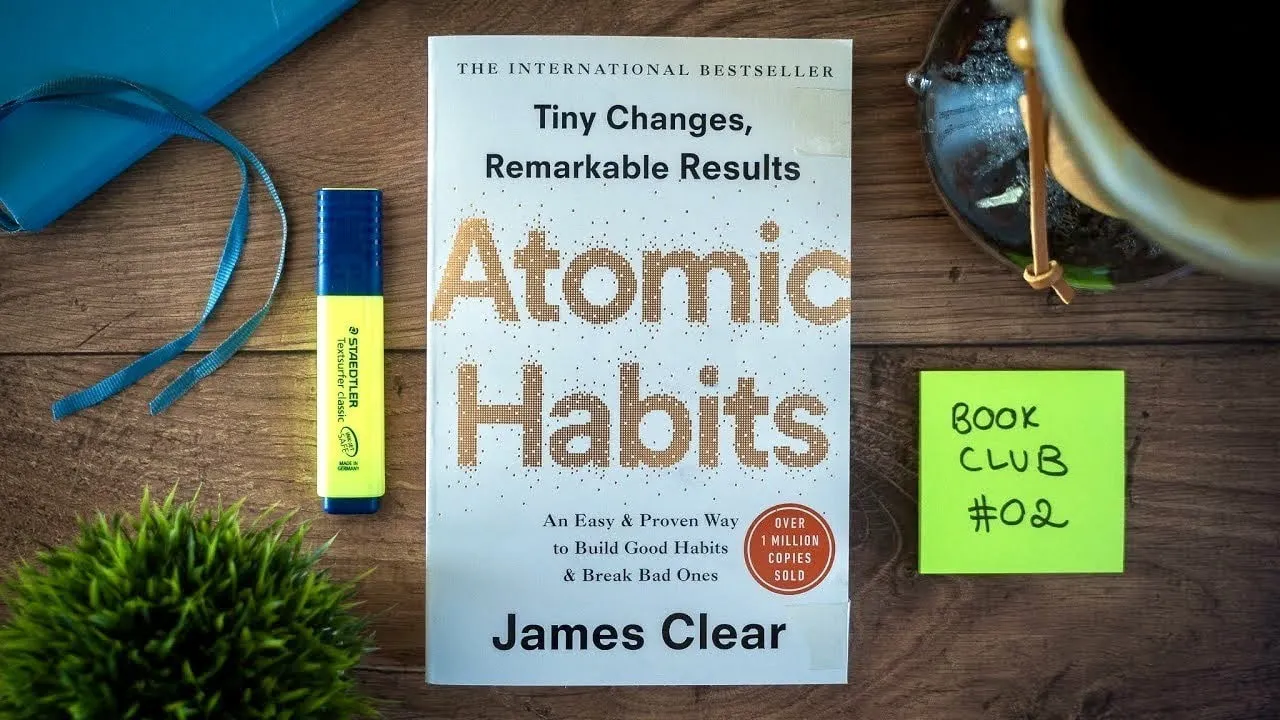
One of the first books I read in 2021 was Atomic Habits, by the author James Clear. It's not a very long or complex read, however it touches on some excellent points that have a lot of value if internalized and reproduced in your own life.
James touches on 5 key points:
- Habits are the compound interest of self-improvement.
- If you want better results, then forget about setting goals. Focus on your system instead.
- The most effective way to change your habits is to focus not on what you want to achieve, but on who you wish to become.
- The Four Laws of Behavior Change are a simple set of rules we can use to build better habits. They are (1) make it obvious, (2) make it attractive, (3) make it easy, and (4) make it satisfying.
- Environment is the invisible hand that shapes human behavior.
A post I shared on Hive a few days back titled Path of FIRE - Your Financial Habits Shape Your Future is focued on the financial aspect of habits, and how they can have a massive impact on your future. I myself have noticed a sharp change in my financial habits and thus, have been able to put myself in a much better financial spot over the past 6+ months.
Building your own 'system', creating and embracing better habits, and making small yet compounding changes in your life will allow you to grow exponentially over time. As James states:
Habits are the compound interest of self-improvement.
Add this one to your reading list, friends!
Traction: Get a Grip - by Gino Wickman
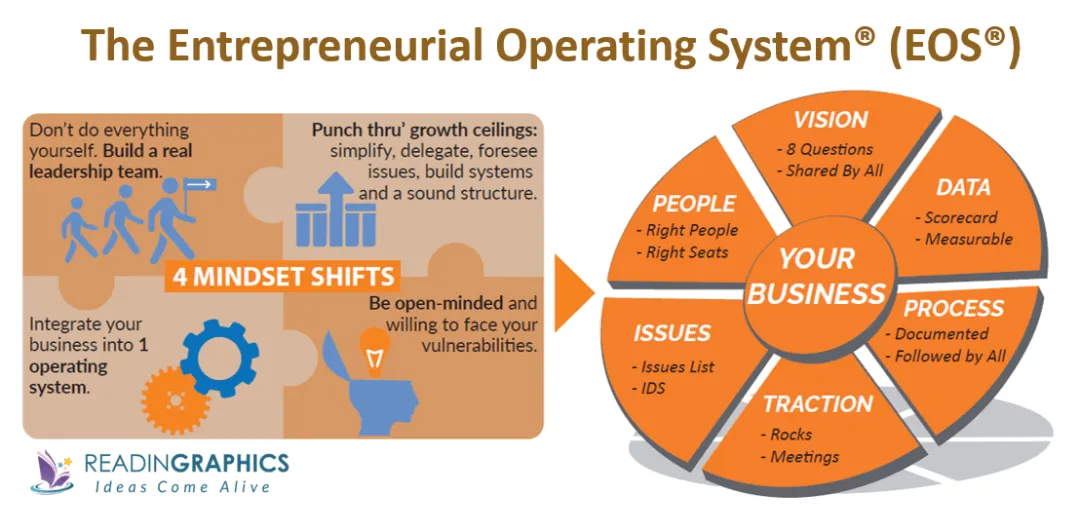
If you're an entrepreneur, or a project manager, or even just work in an agile team setting, then you may have already heard or even read this one. This title has been a massive factor when it comes to maximizing my productivity and results as a self-made entrepreneur. Traction dives into sharing a system that goes by the acronym "EOS" - which stands for Entrepreneurial Operating System.
It's essentially a playbook for managing your own business, team projects, etc, while optimizing output, reducing time wasted by holding far too many meetings than are necessary, and keeping team members accountable yet proactive. After I implemented the teachings of this book in my own business, I noticed a massive shift in output and a giant reduction in time spent on non-essential tasks. It's probably responsible for saving me 150+ hours this year alone.
Traction breaks down the six key components of the EOS model:
- Vision
- People
- Data
- Issues
- Process
- Traction
One of my favorite aspects of the EOS model has to be the implementation and use of a 'scorecard'. A scorecard essentially tracks all KPI's and pertinent data related to a business, campaigns, traffic sources, etc - for example, tracking weekly site traffic, sales/revenue, and new leads or subscribers generated.
This basically gives you a thumb on the pulse of your enterprise or project - it's the perfect way to give you and other team members, including management, a weekly status update on the most vital aspects of your business. It's a very powerful and effective way to stay 'in the know'. Scorecards also allow you to track long and short-term trends, which can indicate whether or not you're heading in the right direction and your efforts are aligned.
I highly recommend that you give this one a read - integrating the EOS system into my entrepreneurial efforts has been one of the best decisions I've made in a long time. The amount of time, energy, and resources I've saved (both myself and other teams that I've worked with) is invaluable, and long-term, it's probably one of the best FREE ways you can improve efficiency in your organization.
The 7 Habits of Highly Effective People - by Stephen R. Covey
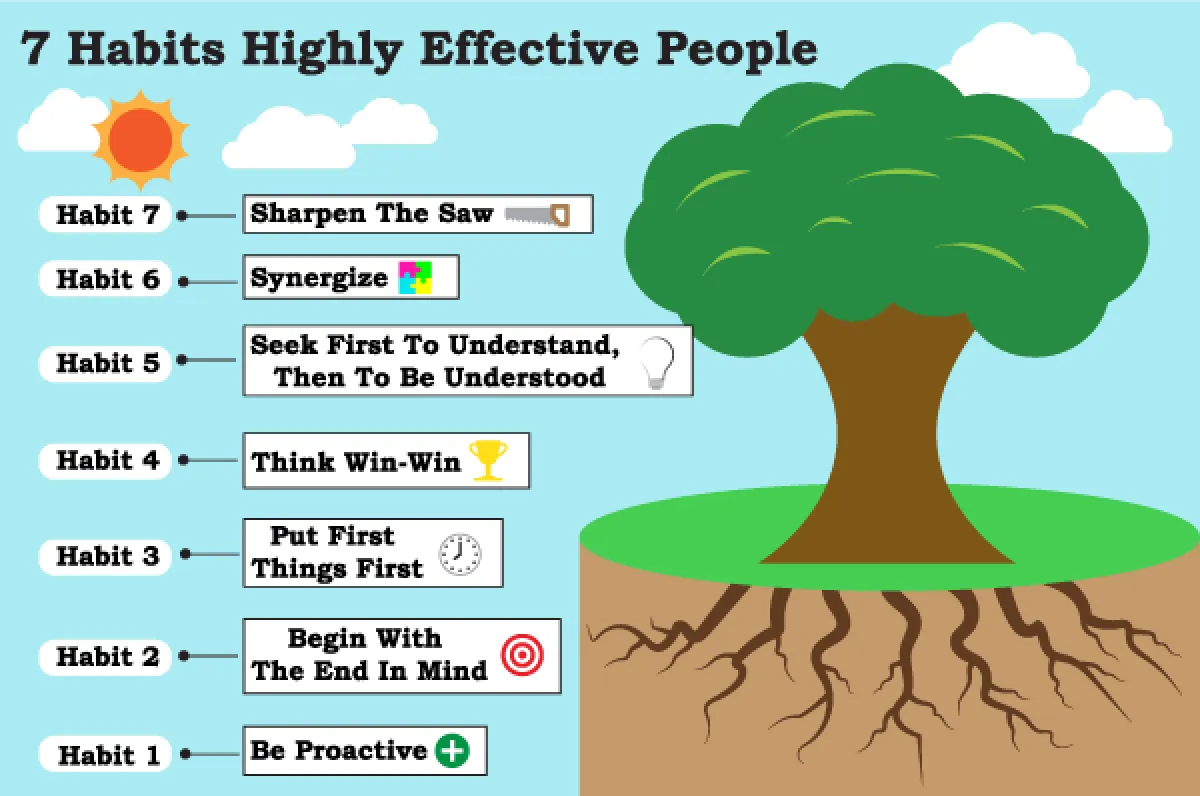
Covey absolutely slams it out of the park with this work of literature. Touching on the subject of habits again, this is another A+ read that every aspiring entrepreneur or self-starter should read, ideally more than once.
Habit-stacking the following 7 habits is a surefire way to amplify your productivity and the level of success you're aiming for:
- Be Proactive
- Begin with the End in Mind
- Put First Things First
- Think Win-Win
- Seek First to Understand, Then to Be Understood
- Synergize
- Sharpen the Saw
Highly successful people embrace different habits than the average person. One of the major examples here would be reading often. The top 1% reads an average of 52 books a year, or 1 book every single week, while the average human doesn't even read 1 full book in a year. We all know that education is key to growing and achieving a high level of success - yet why the large disparity between these two groups?
The successful person spends their spare time 'sharpening their saw' - aka, honing their craft through further education/enlightenment, and positive, productive habits that push them further down the right path. Those of us that don't achieve a good deal of success spend more time watching TV, eating junk food, and spending our free time on mindless, empty habits, instead of further developing our minds and skillsets.
Covey helps us shatter these garbage habits, and teaches us to open our minds to positive ones that can make a huge impact on your life, as well as the lives of your family and others around you. This methodology goes hand in hand with the idea that you are the average of the 5 people you spend the most time with - so find yourself some good company that will help you pick up good habits, and watch your life change for the better!
Financial Freedom - by Grant Sabatier
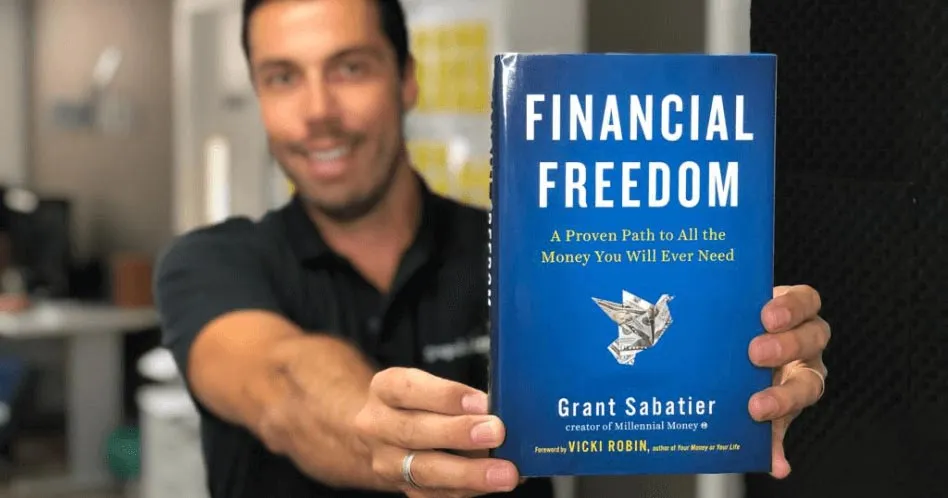
I just finished reading this book a few days ago, and having done so, am confident that it makes the cut for this list. Grant tells readers that retiring early is extremely possible, but it does require hard work and discipline.
The author retired before the age of 30 - wow! While I'm still under 30, I unfortunately won't be able to retire in 6 months (unless I win a million dollars in the next few months!), however, the points he makes in this book have already helped me shift the paradigm for my future. I know that I have a large level of control over my financial future, but it comes down to today's habits and how disciplined I am.
We're taught to invest as much as possible, as soon as possible. The power of compounding interest is extremely powerful, especially when given the opportunity to compound over 25+ years. Not touching our 'nest eggs' is critical to having the best chance possible of never running out of money, even after you retire and your normal income stops coming in.
Starting a side hustle is also an option that should be considered, for a few reasons. First being that having some sort of income, even if small in comparison to your normal wages, will allow you to touch less of your investments, or be able to leave every penny in to grow over time. Second is that when we retire, we end up with a LOT more time on our hands - and well, it can get pretty effing boring! Starting up a new side hustle is a perfect way to give yourself more purpose, generating extra income, and preserving/growing your nest egg so that you can have a great retirement.
We work the majority of our lives - so why not enjoy our retirements? Why would we want to work until we are nearly 70+, only to lateral into retirement and have to downgrade our lifestyle. That's certainly not the life I am aiming for, that's for damn sure.
You should absolutely give Financial Freedom a read, as the playbook contained within is incredibly powerful and can be absolutely life altering.
Of course, there are many more books that I recommend, and I will be sharing more in a future post. Let me know if you've read any of these, and if so, what your thoughts are - have these provided any value to your life? I'd love to hear back!
Happy Coinhunting,
Gh0st | @TradingDojo / @nulledgh0st

Subscribe below:
Substack - bite-sized emails with airdrop alerts and other important crypto happenings!
